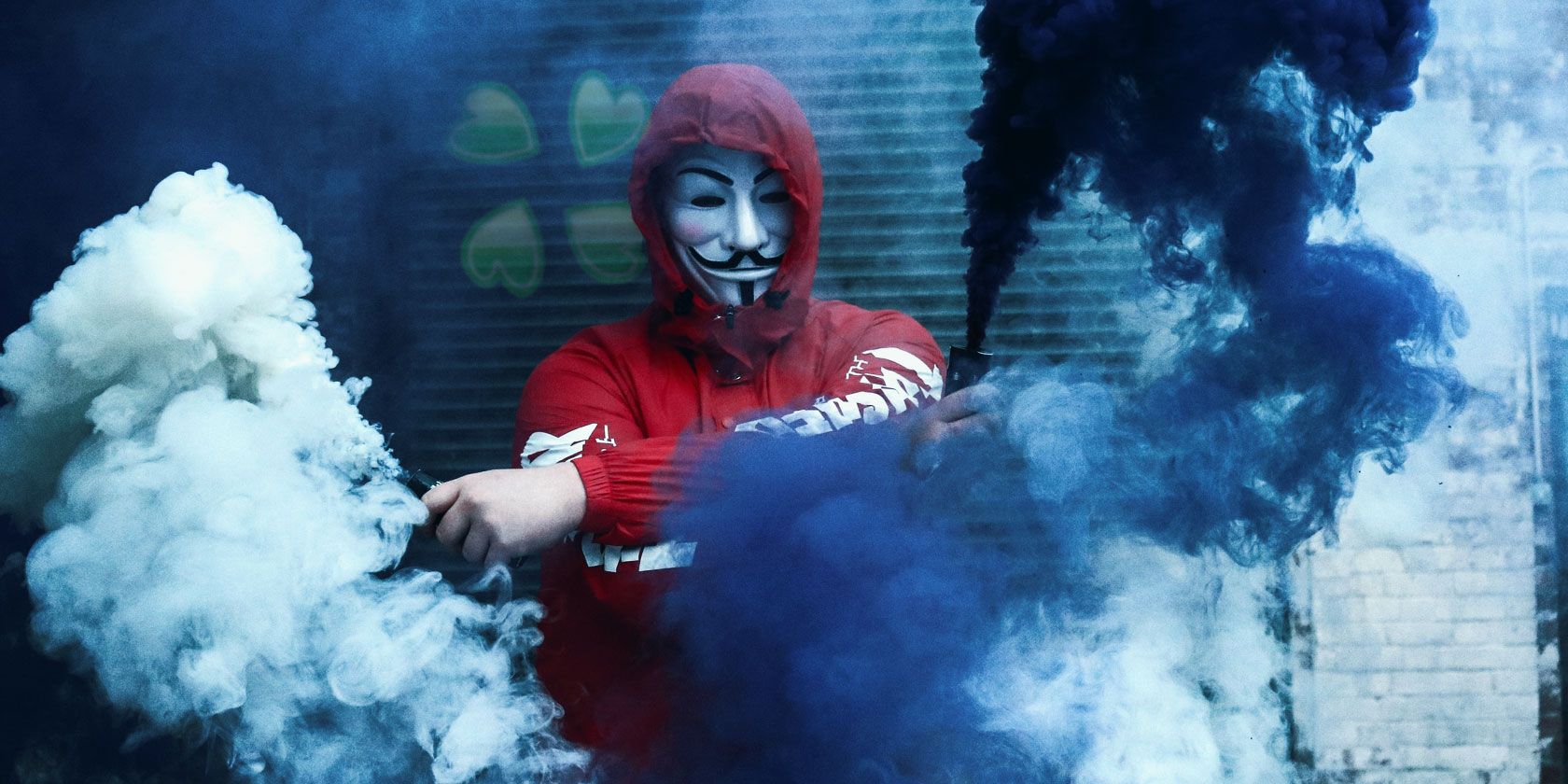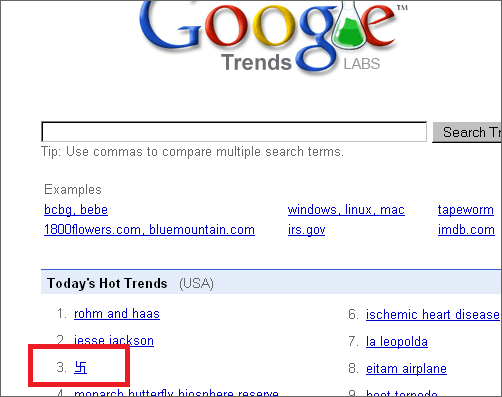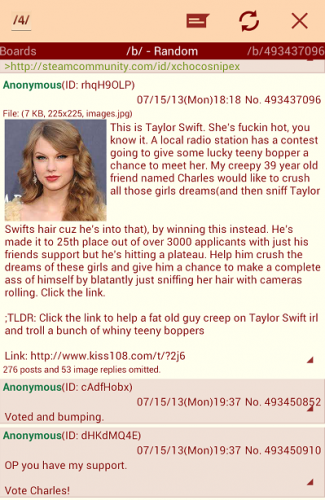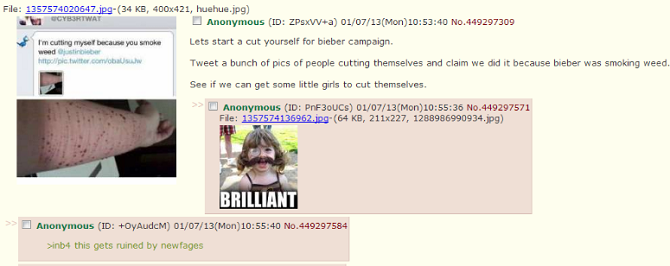
Even if you’ve never visited the site, you’ve probably heard of 4chan. Outside of the dark web, there are very few online communities that have generated as much controversy.
Yet 4chan isn’t a backwater that’s only visited by nerds and geeks. It’s extremely popular. By some metrics it’s one of the most popular sites in the world.
But why is 4chan so contentious? In this article we take a look back over some of 4chan’s biggest controversies, scandals, and storylines.
1. Crashing Apple’s Stock Price
In October 2008, 4chan was responsible for Apple stock losing 10 percent of its value when its members successfully spread a rumor about the death of Steve Jobs. The rumor said he’d suffered a massive heart attack.
The 4chan-created story was spread via CNN’s iReport service, where any member of the public could leave tip-offs and citizen journalism reports. It became the top headline on the site.
4chan members had been trying to get the fake story off the ground for some time. In the aftermath, it emerged the same lie had been posted at MacRumors, Digg, and SAI during the preceding days.
2. A Swastika on Google

Because of the way Google’s algorithms work, it’s possible to game the system if you can get enough people on board.
That’s precisely what 4chan did in 2008 when it sent the swastika symbol to the top of Google’s Hot Trends list.
For a while, Google was stumped. It couldn’t find the reason why it happened. Eventually, it was discovered a post on 4chan told users to search for the swastika’s Unicode symbol.
Google was forced to issue an apology.
3. Trayvon Martin’s Email Account
In 2012, 17-year-old Trayvon Martin was shot and killed. The death made headlines around the world as gun laws, racial tensions, and social equality in the U.S. were once again put under a microscope.
In the aftermath of the killing, a white supremacist operating under the username Klanklannon managed to hack Trayvon’s email and Facebook accounts. He posted screenshots of their contents to 4chan’s /pol/ (politics) board, claiming they included evidence that the teenager deserved to be killed.
4. Anonymous
Anonymous is a secretive, decentralized group of hacktivists. Members are easy to spot thanks to their stylized Guy Fawkes masks.
The group grew out of 4chan back in 2003. However, in its early years, it typically focused its energy on pranks and “banter” rather than activist causes.
That all changed in 2008 when the Church of Scientology became a target. Anonymous undertook distributed denial-of-service attack (DDoS) attacks, made hundreds of prank calls, sent black faxes to waste ink, and posted a now-infamous YouTube video that promised to “expel Scientology from the internet.”
In the following years, Anonymous increasingly started to get involved in political causes. In 2010, it launched Operation Payback. The group attacked the Recording Industry Association of America (RIAA), the Motion Picture Association of America, and the Copyright Alliance over their attempts to shut down file-sharing sites like The Pirate Bay.
12 months later, the group stood alongside protesters during the Arab Spring. It took down regimes’ websites while simultaneously launching a script that would protect protestors’ browsers from government surveillance.
5. Gamergate
Gamergate, which started in 2014, was the low point of a culture war which is still ongoing to this day. There were accusations of unethical behavior amongst game journalists, harassment campaigns against female game developers, and even death threats and doxing.
4chan played a lead role in the early days of Gamergate. Eventually, 4chan’s founder—Christopher Poole—stepped in and banned all mention of Gamergate and the terms associated with it.
6. NFL Bomb Threat
In 2006, a Wisconsin man was jailed for six months and forced to serve a further six months under house arrest for threatening to blow up multiple NFL stadiums.
He posted the threats more than 40 times on 4chan, claiming that stadiums in Miami, Atlanta, Seattle, Houston, Oakland, Cleveland, and New York would be targeted.
“The death toll will approach 100,000 from the initial blasts and countless other fatalities will later occur as result from radioactive fallout.”
He turned himself in to police two days before the supposed bombings were due to take place.
7. The iCloud Celebrity Photos Leak
The hack on iCloud in 2014 is infamous. After a targeted attack, more than 500 photos of celebrities were leaked online. Many of them contained nudity. Affected people included Jennifer Lawrence, Kate Upton, Kaley Cuoco, and Kirsten Dunst.
The photos were first posted on 4chan before spreading around other forums and message boards.
The fallout forced Reddit to ban associated subreddits, while Google was threatened with a $100 million lawsuit on behalf of the victims.
8. Taylor Swift Vote Rigging

A Canadian local radio show organized a contest to let one lucky fan meet pop star Taylor Swift. The fan with the most votes in an online poll would win.
The company assumed most of the competitors would be teenage girls wanting to meet their idol, but 4chan had other ideas.
It sent a “creepy” 39-year-old bloke called Charles into top spot thanks to a specially-made script running on more than 50 computers around the world.
Sadly, Charles’ dreams fell flat. He was disqualified for irregular voting patterns.
9. Sarah Palin Email Hack
Sarah Palin was the running mate for John McCain in the 2008 U.S. presidential election.
On 16th September, just a couple of months before polling day, 4chan user David Kernell hacked into her email account and posted screenshots of its contents on the site.
The screenshots showed no malfeasance on Palin’s part. Here’s how Kernell described what he saw to other 4chan users:
“There was nothing there, nothing incriminating. All I saw was personal stuff [and] some clerical stuff from when she was governor.”
Kernell eventually served one year in prison.
10. #CuttingForBieber

In 2013, TMZ caught Justin Bieber using cannabis at a party. Predictably, the usual outpourings of faux media outrage followed. But, thanks to 4chan, things quickly took a darker turn.
The site’s users created a hashtag and doctored images in a bid to make it look like his fans were inflicting self-harm on themselves in response to the news.
It wasn’t long before other fans started to believe the 4chan fakes and also began cutting themselves in a bid to join the purported “movement.”
The actions of the 4chan users were widely condemned by charities, help groups, and Justin Bieber himself.
Policing the Internet
All of the 4chan controversies discussed here have victims, which is why we can’t condone such “pranks”. However, the question remains over how to deal with these issues when they arise.
This, of course, feeds into the broader debate around free speech on the internet, which is unlikely to be settled anytime soon.
Read the full article: The Biggest 4chan Controversies Everyone Should Know About
Read Full Article
No comments:
Post a Comment